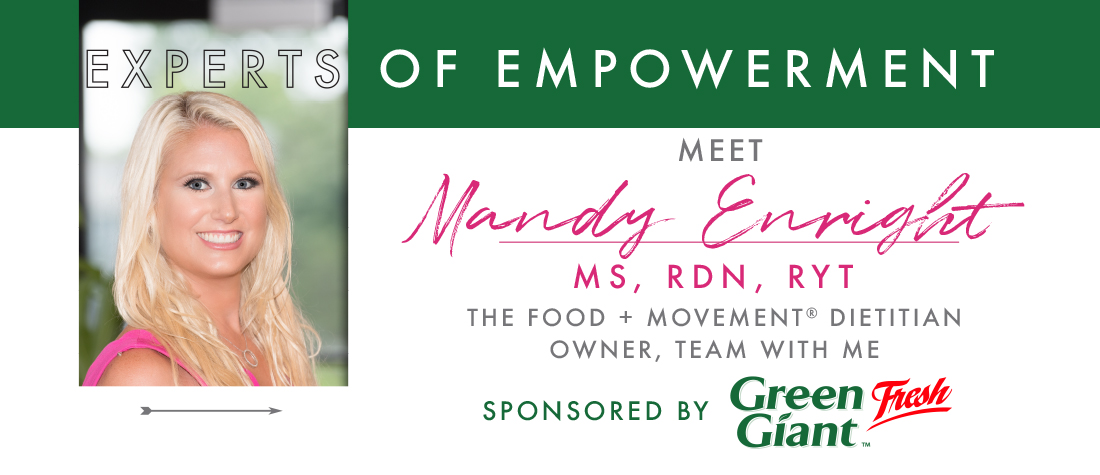
Meet Mandy Enright, the founder of FOOD + MOVEMENT®. Whether you're just getting into health and wellness or you'd consider yourself a guru, Mandy's empowering story will inspire you to prioritize your mind and body. We asked Mandy 6 questions about her remarkable journey from the corporate world to a thriving career in nutrition and fitness to discover how transformative a balanced approach to wellness can be. Read her uplifting story!
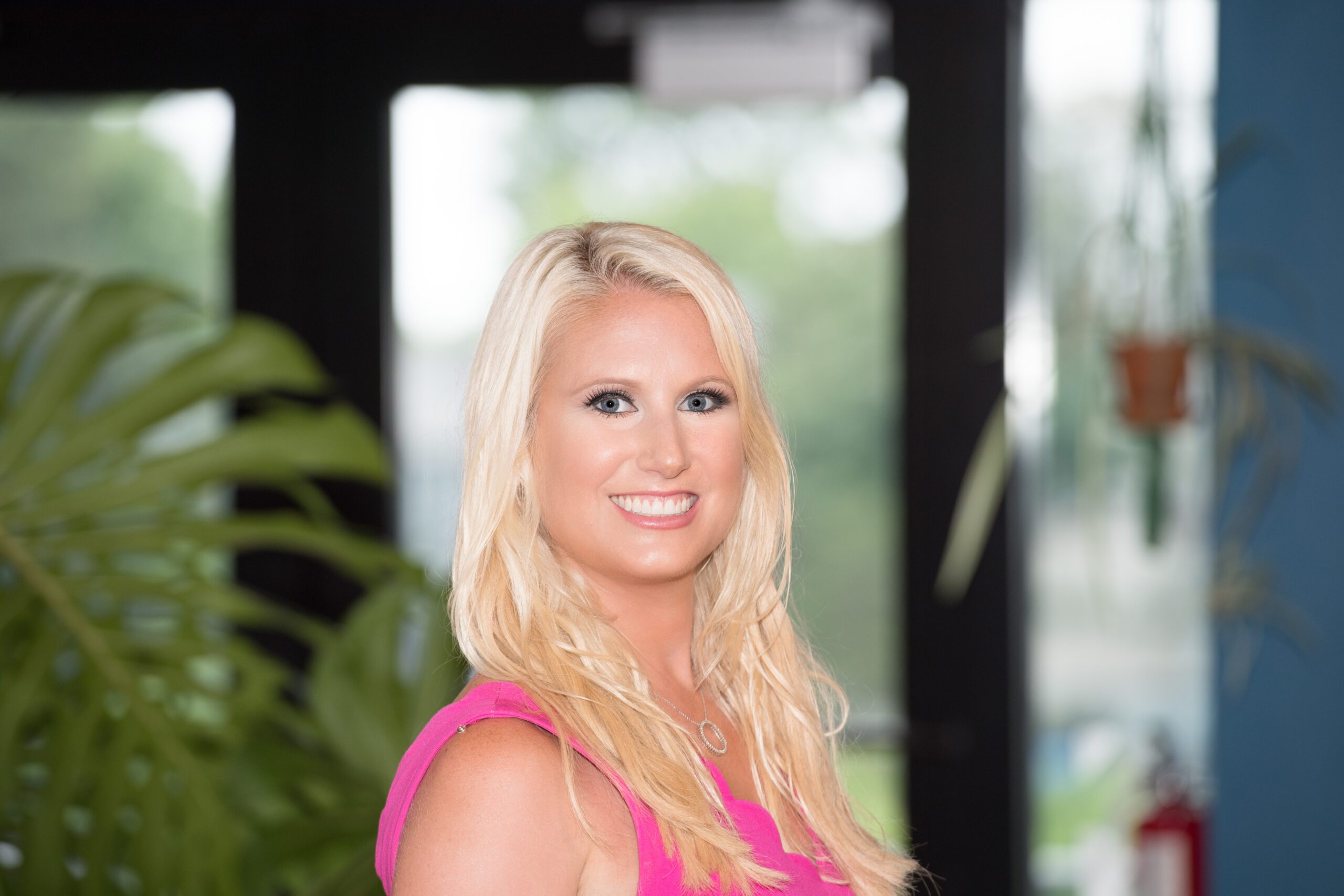
1. What inspired you to transition from a career in corporate America to dedicating yourself full-time to nutrition and fitness?
While I was working in advertising, I started teaching kickboxing classes on the weekends. I honestly did it so I could get a free gym membership and a little extra cash on the side. I soon realized how much I loved the world of fitness and reveled in how different it was from the corporate grind I’d gotten acclimated to over the years. The gym I taught at ran a 10-week challenge that had a nutrition component, and they asked if I’d like to be a coach for the program, which was my first foray into learning about nutrition. I soon became obsessed with the world of nutrition and fitness and started looking into potential career options. I was most intrigued about nutrition and how many career avenues it offered, so I went back to school to become a registered dietitian. Along the way I learned about the world of corporate wellness, and that’s where I knew I could make my mark. Because I always say that Advertising Mandy didn’t have a Dietitian Mandy that was in her corner, and I’m here to change how wellness is addressed in corporate America. Call it a Hero Complex or call it coming full circle, but I’m on a mission to change overall wellness in the workplace.
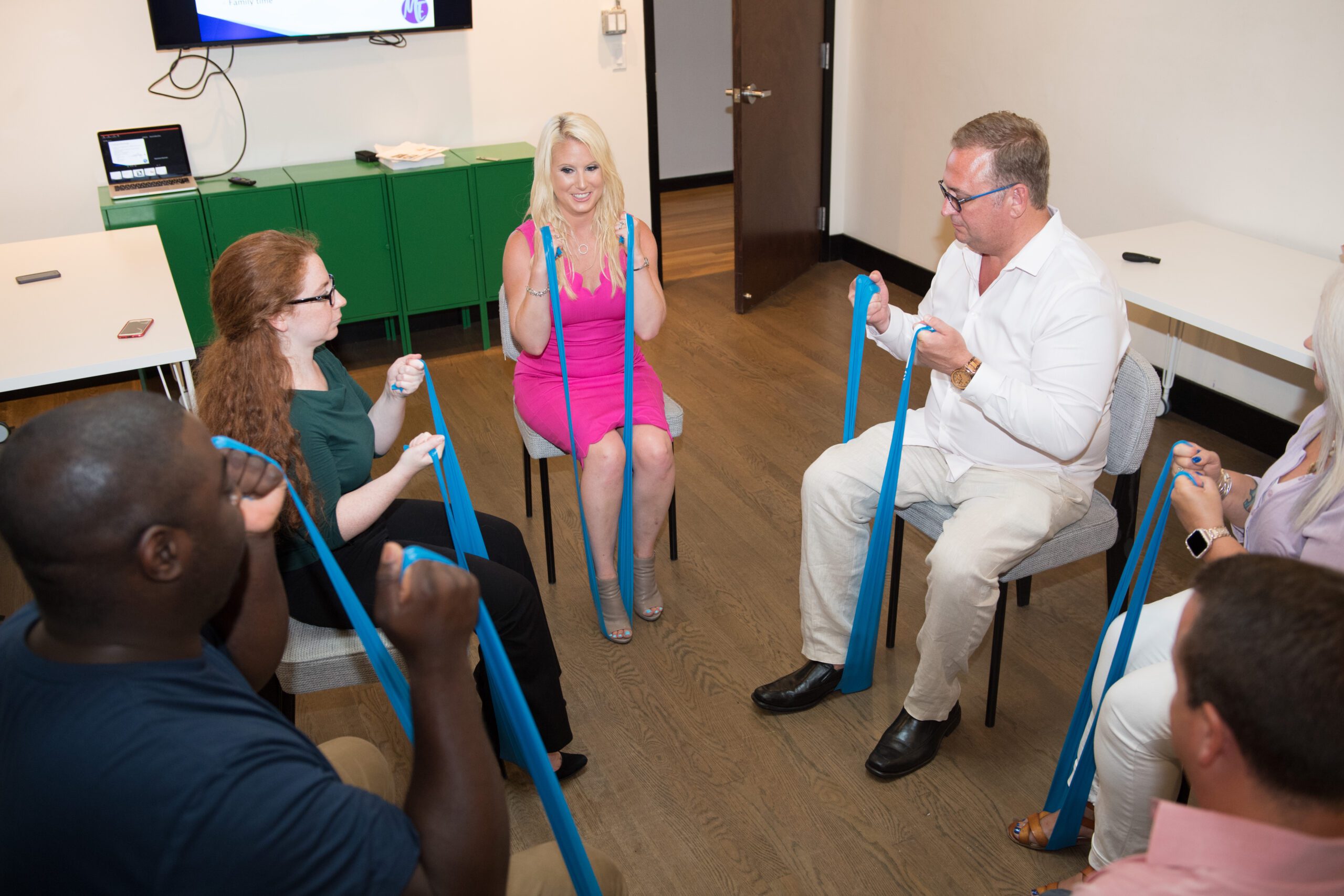
2. Explain your philosophy about one achieving his/her best wellness ….
I’m called the FOOD + MOVEMENT® Dietitian for a reason, and that’s because I believe food and movement are keystones to our wellness. They’re both things we need to focus on daily to achieve optimal health and wellness. Over the years I’ve started adding on mindfulness into this philosophy as well because of how much influence our mindset has on our mood, performance, stress management, and overall physical and mental health.
I also like to remind people that wellness looks and feels different for everyone. Don’t focus on what someone else’s wellness journey looks like because it’s not the same as yours. And what “wellness” looks like for you today probably isn’t the same as what it looked like 10 years ago and won’t look the same 10 years from now. So focus on where you are at now and what you need today.
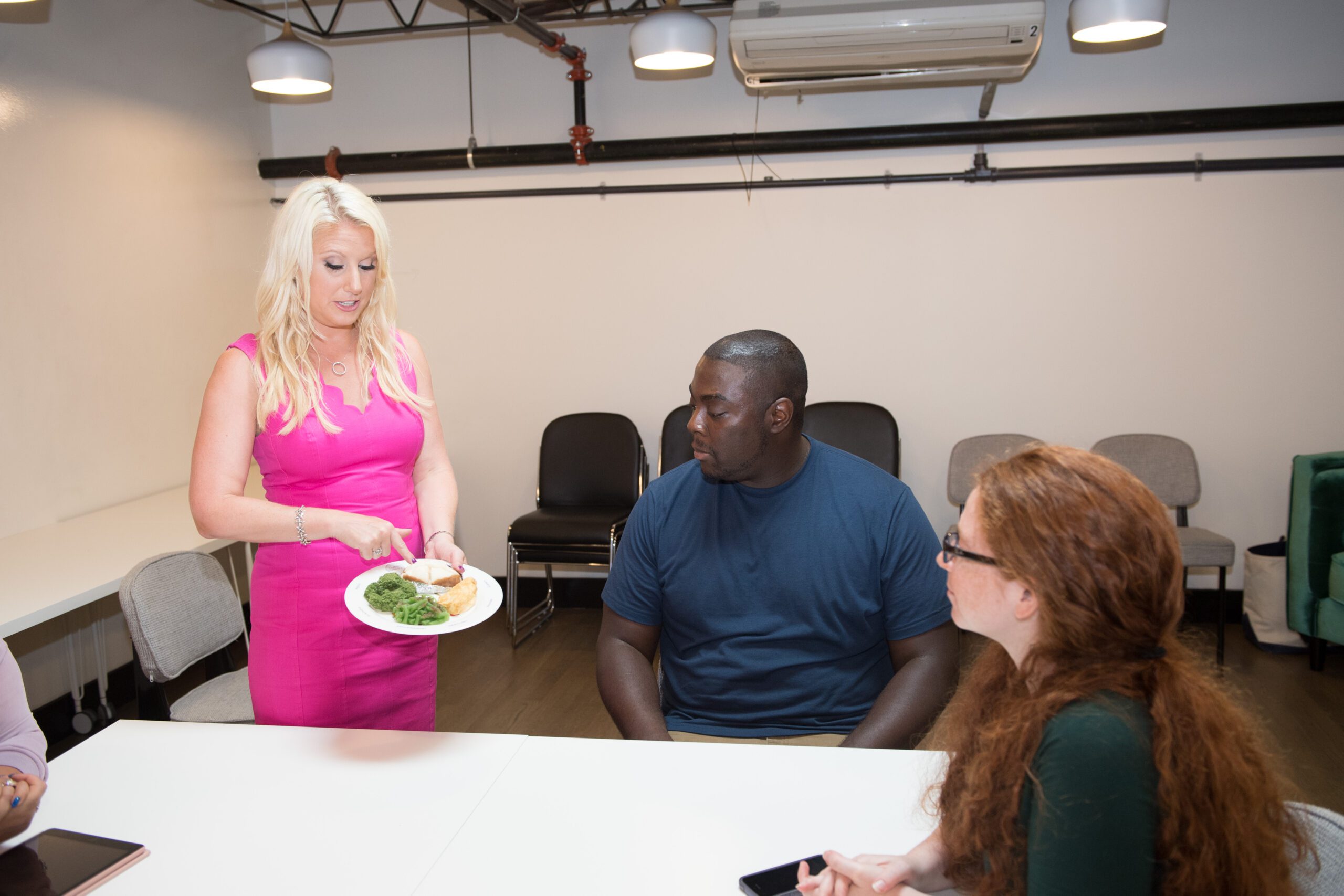
3. How significant are movement and mindfulness in contributing to a person's overall physical and mental well-being?
Extremely! As a yoga teacher, we often talk about how yoga is “mindful movement”. You need to be in the moment and extremely conscious of what your body is doing while transitioning between poses and holding poses, not to mention adding breathing into the mix. That certainly translates into our daily lives.
We live in a fast-paced society. Everything we do is rushed, including choices we make throughout the day. Mindfulness helps us make better choices and allows us to give our body what it needs. When we take a step back and assess the situation, we can better determine things like how hungry we actually are, what food choices can best satisfy us in that moment, what and how much should I eat now to tide me over until my next meal, or how doing some stretching can help relieve stress and tension in certain areas of the body.
Most people think of movement for its calorie-burning benefits. And yes, I won’t deny that’s extremely true of movement. But movement is about so much more than that. Movement is an opportunity to challenge your body, mind, and muscles. Movement gets the heart pumping and blood flowing. Movement allows us to step away when we need a break. Movement can give us fresh air. And most importantly, movement can bring a sense of joy into our days. These are all benefits that go way beyond how many calories we can burn.
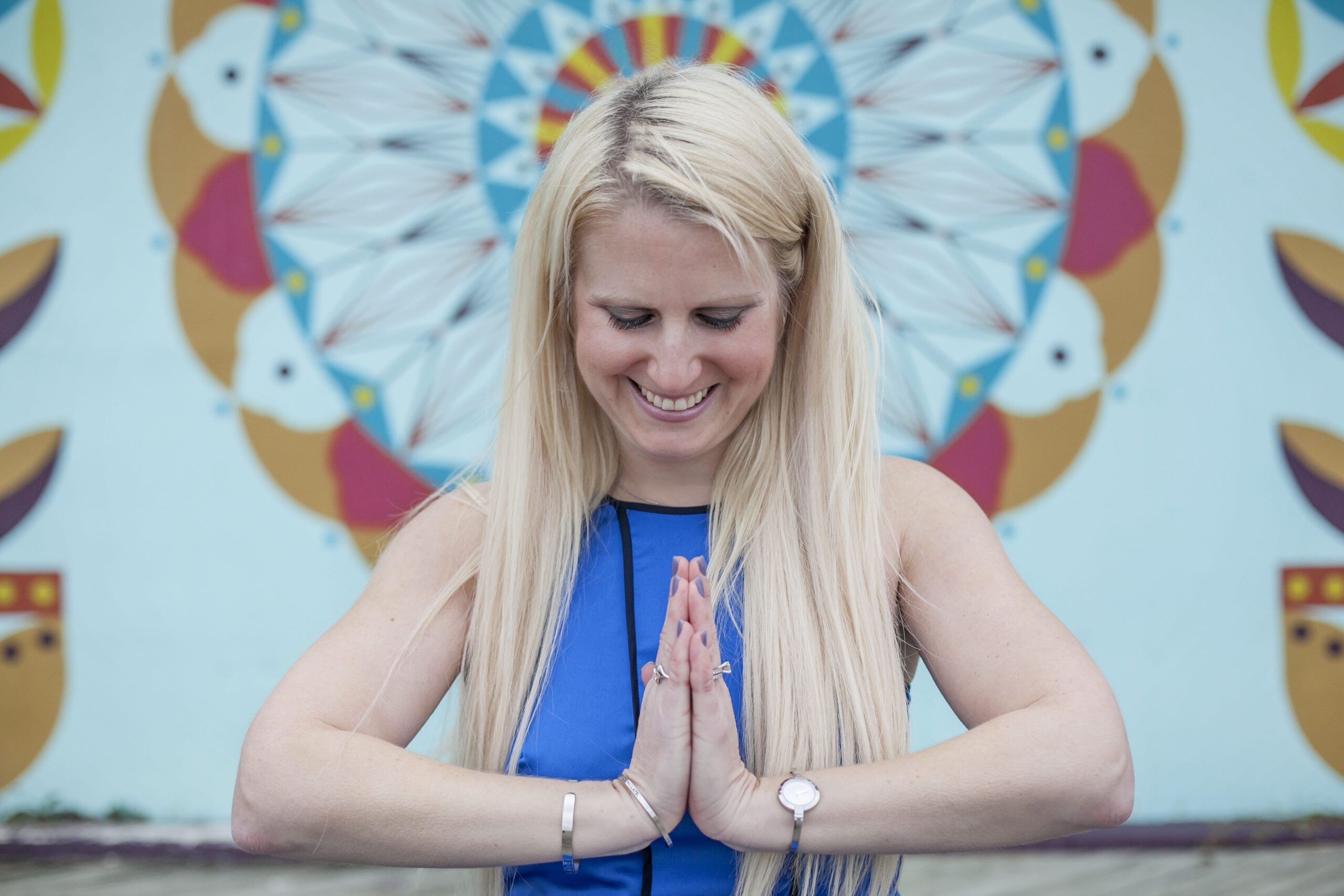
4. Can you describe the challenges and rewards you have experienced being a dietitian and wellness expert? How did your personal experience with fitness and nutrition influence your approach to creating healthy diet plans for your clients?
It's so rewarding for me to work in my role as a worksite wellness dietitian and truly help people I can relate to because that used to be me.
I became a dietitian right as social media was starting to boom and this whole world of “influencers” took over. One of my biggest challenges every single day is debunking myths about nutrition, food, and overall wellness. I can’t tell you how many times in my worksite wellness presentations I have to defend foods like potatoes and share how they fit into a healthy lifestyle due to their fiber, potassium, and vitamin content. Or do side by side comparisons of the nutrition for white potatoes and sweet potatoes and showcase they are THE SAME when it comes to calories, carbs, and fiber and the ONLY difference is that sweet potatoes have more vitamin A which gives them their orange hue. We at Farm Star Living love Green Giant Fresh™ potatoes, which are actually grown to higher specs and standards than even the USDA or state requires! That's why they're so delicious, safe and healthy! See our recipes on delicious ways to integrate more into your diet!
5. Can you share some of the most effective mindfulness practices you recommend to individuals dealing with high-stress jobs? What are some common misconceptions about healthy diets and fitness that you often encounter?
Being a former member of corporate America, I always take into account people’s time and daily schedules when it comes to advice and helping them with meal planning. I aim to be realistic with their time and abilities. Because the last thing anyone needs is ONE MORE THING in their day to stress about. I aim to make meal planning and meal preparation as easy I can for people. That includes things they can buy at the store, like frozen foods or meal prep kits, along with maximizing time in the kitchen by making one meal but turning that into another dinner or lunch the next day. And teaching people that “leftover” doesn’t have to mean a repeat meal – leftovers can also be ingredients to create something completely different.
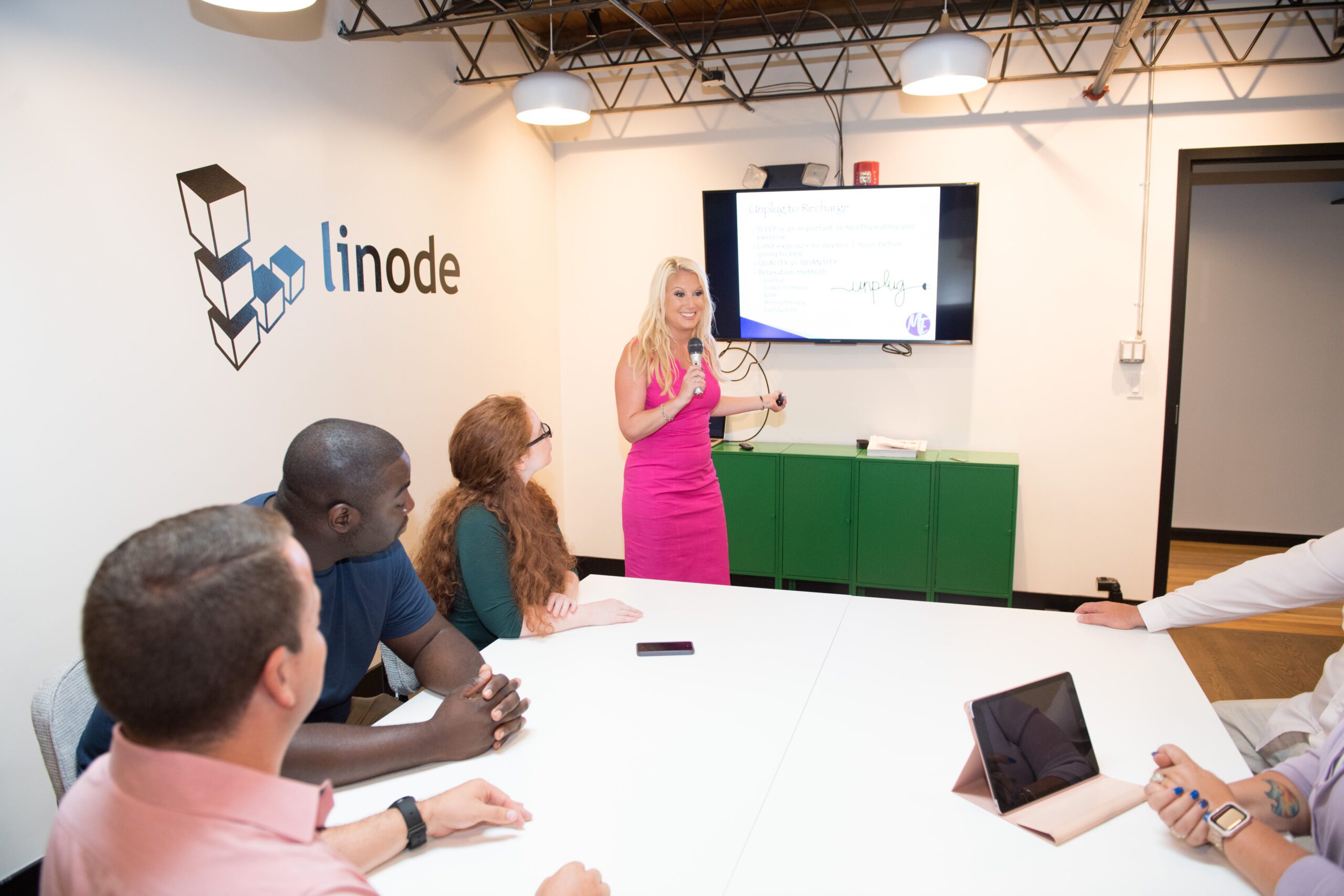
One of the most important and effective mindfulness practice I teach people is checking in with their breath. I often joke that breathing is the one involuntary activity we do terribly. When we’re stressed, our breathing becomes very shallow. So taking just 3 deep breaths in our day can have powerful outcomes for reducing stress. Daily reminders, like putting little 5-minute slots on your work calendar or even a sticky note at your workspace that says “BREATHE” can be important reminders to check in on our breath. I’m currently doing a deep dive into something called Mindfulness Based Stress Management (MBSR) and I’m excited to have some new tools to share with my worksite wellness clients.
There are A LOT of misconceptions out there when it comes to nutrition and fitness. One of the biggest is that people assume it’s expensive to eat healthy. This is absolutely not true. Incorporating more plant-based foods, like fruits, vegetables, and whole grains, can save you a ton of money. One of the drivers of this misconception is the belief that organic = healthy, which it does not.
Research has shown that nutritional content of both organic and conventional produce is the same, and there are no substantial health benefits of eating organic. Only 1 in 10 Americans is getting the recommended daily amount of fruits and veggies, so eating any form of fruits and vegetables, be it fresh, canned, frozen, or dried, is going to be beneficial. Buy what fits your budget.
And then there’s our poor friend carbohydrates that have turned into the scapegoats for weight management. Carbs are not bad for us. They are misunderstood. I always talk about quality and quantity when it comes to our food choices, and this is especially true for sources of carbs. High-fiber sources of carbs are extremely beneficial for us including satiety, blood glucose control, heart health, and gut health. There is a massive nutritional difference between having a baked potato and potato chips. Not all carbs are created equal. Working with a registered dietitian can help clear a lot of the clutter and misinformation that’s out there.
6. Any advice for someone just getting started to take their wellness routine seriously?
First and foremost, DON’T take your routine so seriously. Everyone thinks wellness has to be all or nothing, but the truth is that’s the wrong approach. I always say progress gets more results than perfection. The biggest mistake I see people making is trying to change everything all at once, which is a fast track to frustration and failure. Therefore, the number one tip I give to folks looking to amp up their wellness routine is to pick ONE THING to focus on changing. And make that one thing an addition instead of a subtraction. What is one thing you can do MORE of in your routine? Is it eat more fruits and veggies, drink more water, or stand up and move more in your day? Focusing on the more factor makes us feel accomplished and less deprived. And when you focus on making one very specific change, I assure you that a domino effect of other positive changes will happen naturally.
We hope you enjoyed Mandy's message as much as we did! Make sure you follow Mandy and stay connected to all that she's doing and sharing with her community, so check out her Instagram and her website. Also, let us know how you liked Mandy's expert tips and check out our Instagram and Facebook (farmstarliving), or email us at wellness@farmstarliving.com.


I love seeing someone doing something so important for the health and well-being of people.